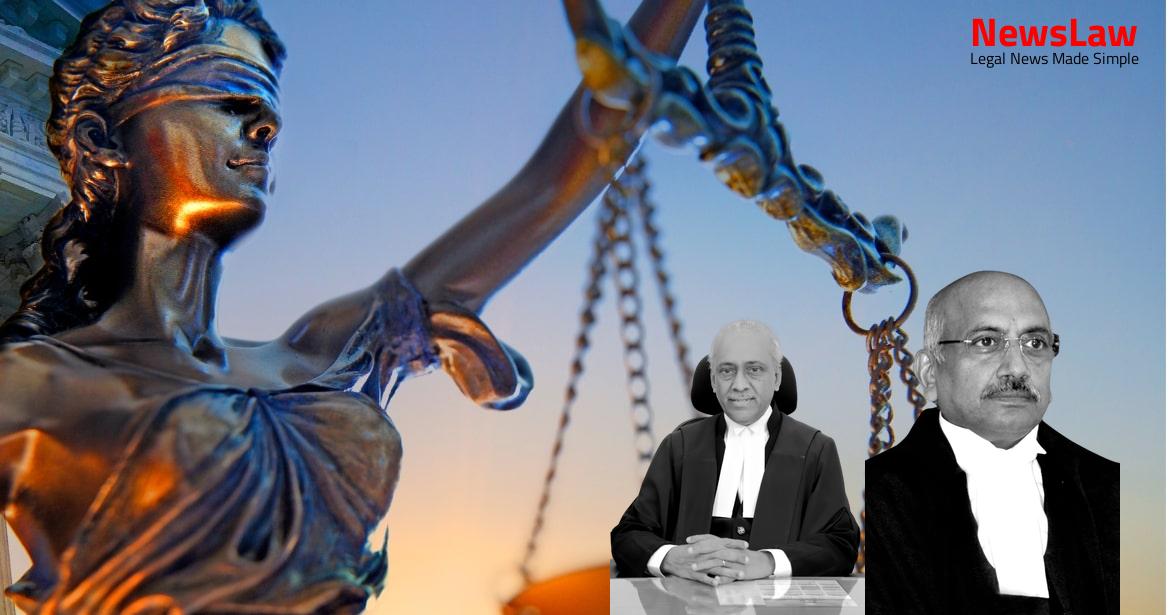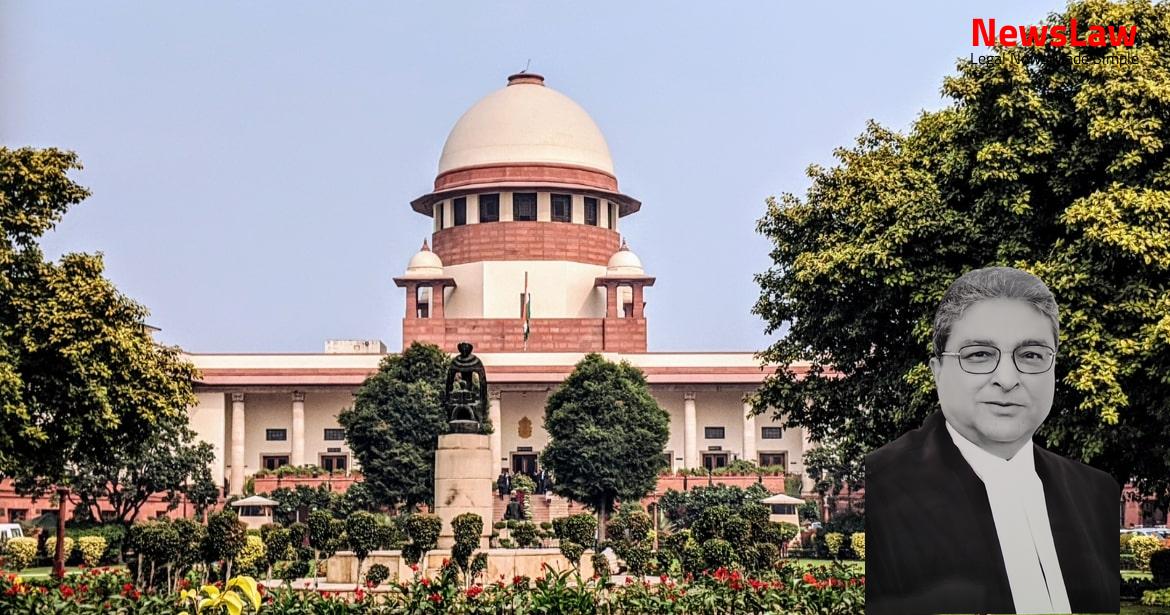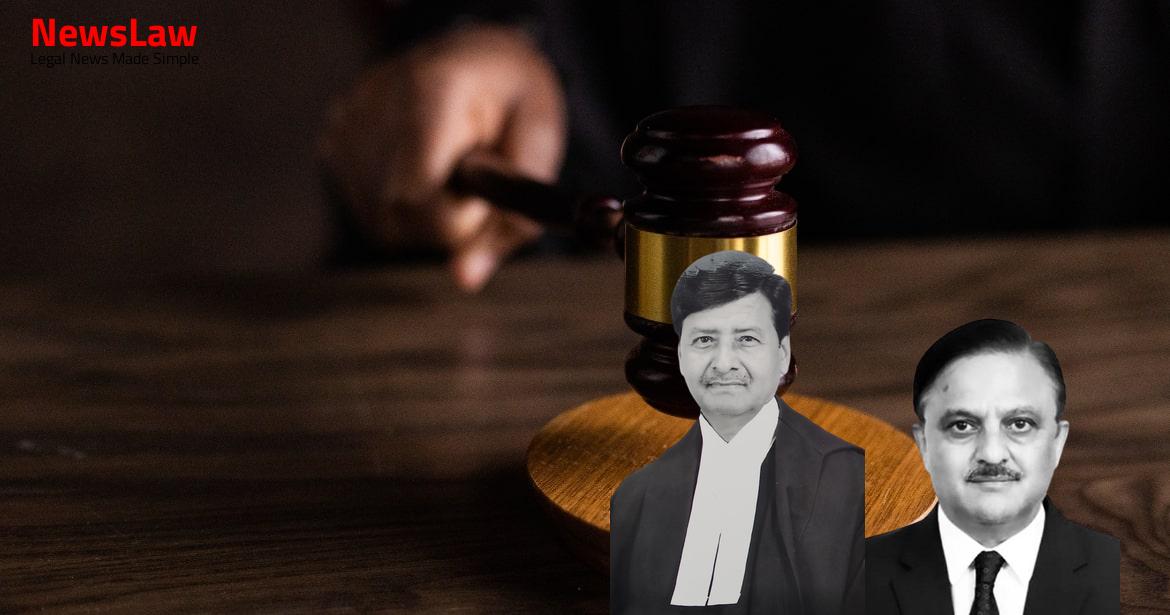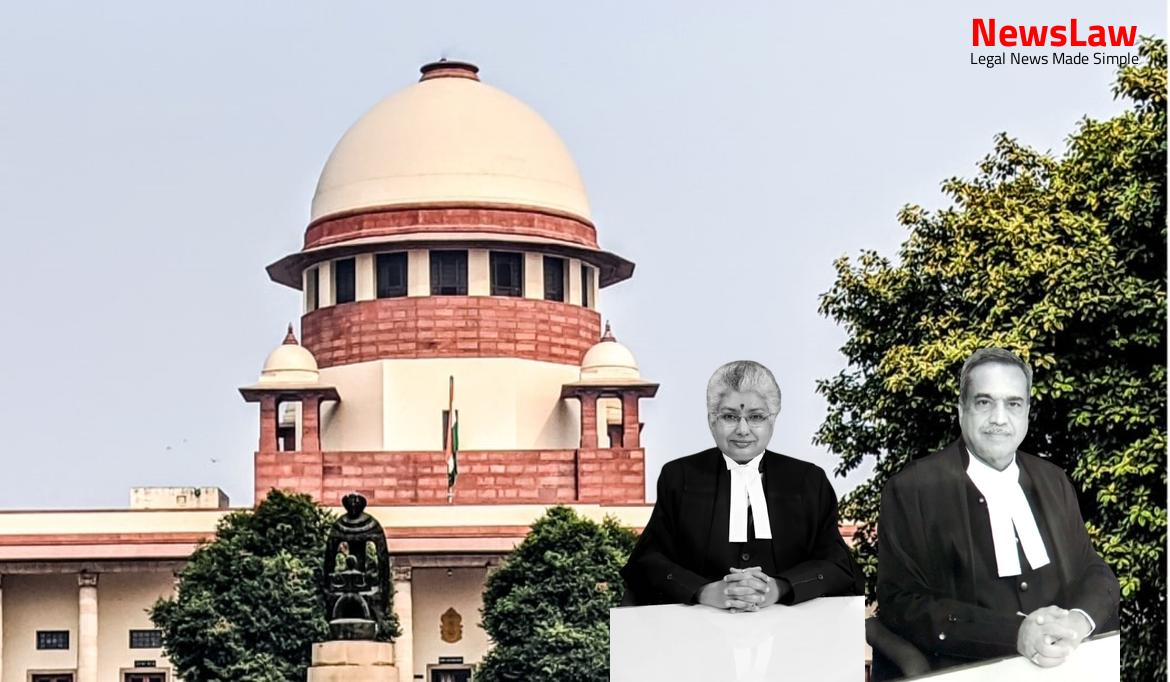Delve into the detailed legal analysis conducted by the court regarding regulations affecting foreign medical graduates. The examination encompasses constitutional provisions, historical context, and the critical necessity for rigorous regulations in the field of medical education. The court’s findings shed light on the complexities and justifications behind the regulatory framework in question.
Facts
- The appellant filed two writ petitions challenging provisions of Licentiate and CRMI Regulations due to restrictions on international travel during the pandemic.
- The High Court dismissed the writ petitions as the appellant had not applied for admission to any foreign institution and imposed a cost of Rs.25,000/-.
- The appellant appealed against the dismissal, arguing that the Regulations were ultra vires and violated Articles 14, 19(1)(g), and 21 of the Constitution.
- The Licentiate Regulations and CRMI Regulations were issued by the National Medical Commission under specific sections of the National Medical Commission Act.
- The appellant completed his Higher Secondary education in 2021 under the C.B.S.E. Scheme and had an All India NEET Rank of 68772.
- The impugned Regulations were issued to ensure minimum standards.
- The Regulations are not ultra vires the Act or the Constitution.
- A Division Bench of the Madras High Court dismissed the writ petitions.
Also Read: Undisclosed Conviction for Dharna Under Police Act Leads to Overturned Election
Arguments
- Appellant challenges CRMI Regulations, 2021 on grounds of treating foreign medical graduates differently from Indian graduates, particularly in terms of internship requirements.
- Appellant specifically challenges Schedule II-Para 2(a)(i) which mandates foreign medical graduates to undergo internship at par with Indian medical graduates.
- Appellant also challenges Licentiate Regulations, 2021 on grounds of violating the Right to Health under Article 21 and exceeding the regulatory powers granted by the NMC Act.
- Regulation 4(a)(i) of Licentiate Regulations, 2021 is criticized for limiting student choices by requiring a foreign medical course duration of 54 months.
- The argument is made that the system of Modern Medicine being universal, categorizing students based on studying in India or abroad violates Article 14.
Also Read: Critical Analysis of Legal Principles in a High-Profile Criminal Case
Analysis
- Regulation 4(a)(ii) and 4(b) impose extra-territorial legislation on foreign medical graduates.
- Regulation 4(c) causes hardship by requiring foreign medical graduates to undergo internships in both their home country and India.
- Regulation 4(b) encroaches on the immigration policy of other countries by mandating registration with professional regulatory bodies.
- The impugned regulations unjustly restrict the right to practice medicine and do not serve public interest.
- These restrictions may lead to brain drain from the country.
- The regulations increase the duration of the curriculum for foreign medical graduates.
- Section 13(4B) requires Indian citizens to obtain an eligibility certificate before getting admission to foreign medical institutions.
- Section 13(4A) mandates a screening test in India for enrollment on any Medical Register.
- Sub-sections 4A, 4B, and 4C of Section 13 operate at different stages – pre-admission and post-completion of the medical course.
- The Regulations prescribe minimum standards for foreign medical graduates seeking to practice in India.
- Section 36(4) only saves qualifications recognized before the commencement of the Act.
- Amendment Act 34 of 2001 introduced provisos and an Explanation under Section 13(4).
- The Ordinance was replaced by the 2010 Amendment Act.
- Challenges were filed against the Screening Test Regulations, 2002 by students of former U.S.S.R. medical colleges.
- MCI recommended de-recognition of medical degrees from former U.S.S.R. post disintegration.
- Recommendations were made for post-screening for returnees to India and pre-screening for prospective foreign medical institution entrants.
- A Group of Experts chaired by Dr. Ranjit Roy Chaudhury was formed in 2014 to address the issue.
- Legal challenges were filed by students who joined courses in various years.
- The Indian Medical Council (Amendment) Ordinance, 2010 was promulgated after a scandal in the MCI.
- Regulations do not encroach on foreign countries’ sovereignty but set standards for students abroad.
- Osmania University was included in the list of recognized institutions despite Hyderabad not being a part of British India initially.
- Constitutional provisions and historical background support the regulations.
- Challenges to the regulations were found to be baseless and lacking substance.
- The Regulations ensure adequate training and skill testing for foreign medical graduates.
- Provisions under the Act supersede conflicting State laws regarding medical registration.
- The power to frame regulations is broad and essential for ensuring standards in medical education.
- The need for stringent regulations stemmed from past experiences and current necessities.
- The batch of students affected by the amendment to the Screening Test Regulations filed writ petitions in the Delhi High Court challenging Regulation 4(3) of the Screening Test Regulations 2002 as ultra vires the provisions of the Act.
- The Delhi High Court in Rohit Naresh Agarwal vs. Union of India declared Regulation 4(3) as amended in 2010 to be ultra vires the Act.
- The High Court of Kerala allowed a writ petition by Sadhiya Siyad, but stated that the State Medical Council could still bring up the need for foreign medical graduates to undergo internship afresh.
- The stage was set for the National Medical Commission (NMC) to issue appropriate regulations under Section 57 of the Act.
- The Regulatory body’s attempts at reform were often challenged, leading to legal battles and judgment discrepancies.
- A learned Judge of the Kerala High Court set out four questions to consider, highlighting the eligibility criteria for appearing in the Screening Test as per the IMC Act.
- The National Medical Commission Act, 2019 was passed in response to such legal challenges and developments.
- The NMC Act outlined the constitution of a National Medical Commission and autonomous boards, along with provisions for recognizing medical qualifications granted by institutions in and outside India.
- Court decisions and challenges related to completion of medical courses abroad were discussed, emphasizing the importance of adherence to regulatory requirements.
- Costs imposed by the High Court of Madras waived off for the appellant, who is a student
- Courts can only show sympathy to a certain extent in such matters
- Medical institutions in the country can only provide internships to the permitted intake of students
- Regulation aims to prevent undue burden on recognized institutions
- Dismissal of the writ petitions by the Madras High Court was justified
- Historical facts brought on record to prevent future challenges to the Regulations
Also Read: Legal Analysis on Specific Performance Obligations in Land Sale Agreement
Decision
- The appeals are dismissed.
Case Title: ARAVINTH R.A. Vs. THE SECRETARY TO THE GOVERNMENT MINISTRY OF HEALTH AND FAMILY WELFARE (2022 INSC 501)
Case Number: C.A. No.-003585-003586 / 2022



